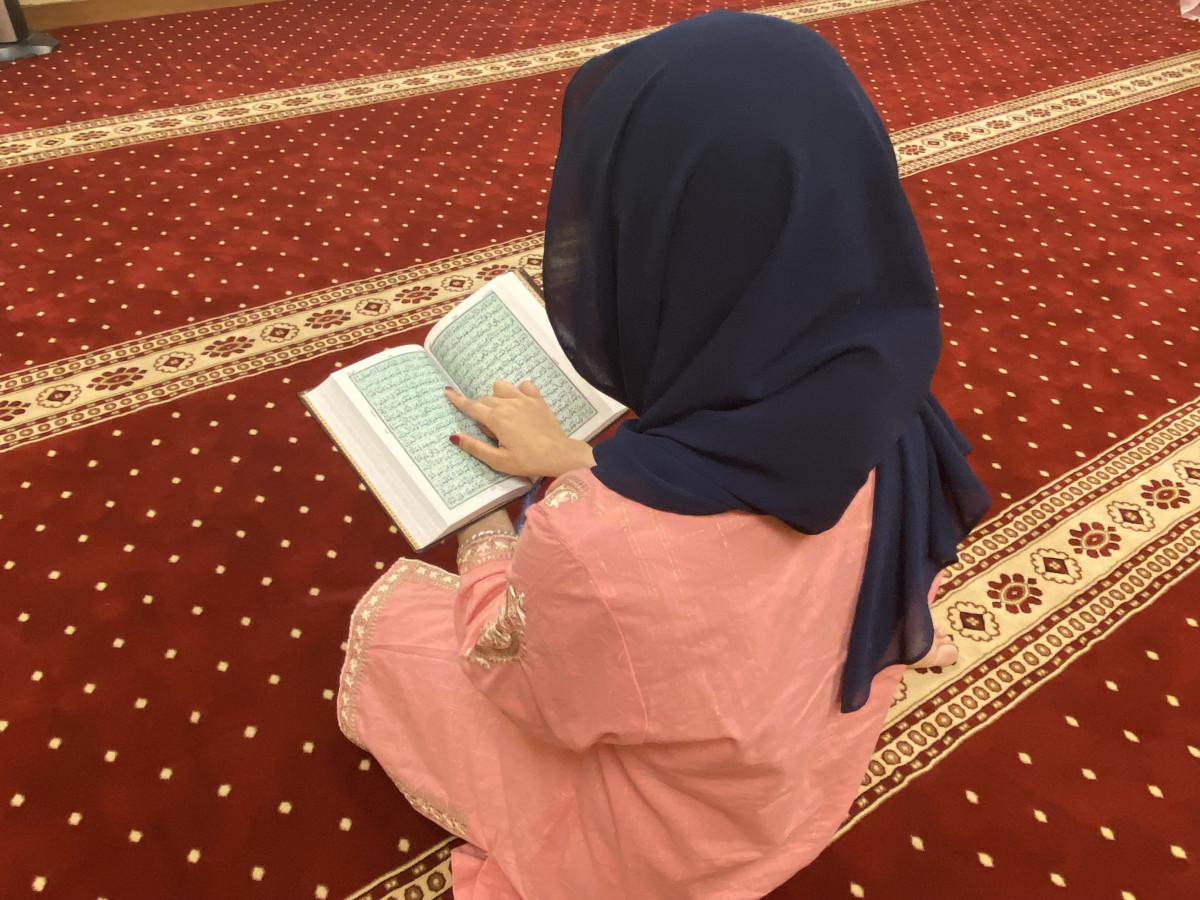Muslims all around the world are celebrating the holy month of Ramadan which is the ninth month of the Islamic calendar. During Ramdan, Muslims cannot eat or drink for about 16 hours. This holy month is a time of joy, generosity, praying and being with family. Fasting becomes mandatory around the age of 12. Fasting for young muslims during Ramadan can be hard, however, many manage to keep up.
“At first, fasting can be a little hard to adjust to,” freshman Aliyana Hogan said. “As Ramadan goes on, it definitely gets easier and you can kind of start to enjoy it.”
Muslims have to wake up early to eat the morning meal, suhoor or sehri. They have to stop eating once it’s time for the morning prayer, Fajr. They’re able to break their fast once the sun sets. The evening meal is called iftar or iftari.
“My routine for Ramadan this year is to wake up for sehri at 5 am sharp. Once I finish my breakfast, I pray fajr (morning prayer). Then I go to school. I read my prayers that I am required to pray throughout the day,” freshman Hira Azhar said. “I also read the Quran and then go to the Masjid where I pray Maghrib (sunset prayer) and open my fast and eventually make my way home and pray Isha (evening prayer) and work on my homework.”
Not eating or drinking for a long period of time is hard for many. Eventually, by the end of Ramadan, it’s much easier to fast.
“I have been fasting since I was little, so fasting is like second nature. It is easy and I usually don’t get hungry or thirsty,” sophomore Nur Azhar said. “The 16 hours go by like a breeze, and I am usually not even thinking about eating or drinking.”
Helping the needy is an important part of Ramadan. During Ramadan, Muslims always try to help the needy whether it’s something small or something big.
“I also like to give back to the community, even if it’s small,” Hogan said.
Ramadan is also a time where Muslims can become better and focus more on their religion.
“The importance of Ramadan to me is seeing myself grow and become a better Muslim,” Hira Azhar said. “During Ramadan, I have time to work on myself and allow myself to be the best Muslim I can be.”
The holy month for the Muslims also teaches them many useful lessons.
“Fasting teaches me discipline and the true meaning to all of this. I could drink some water or eat some food and no one would know, but God and I would,” Nur Azhar said. “That’s my favorite part. Being reminded that my actions count, no matter who is watching.”
Living in a city where there isn’t much diversity, life for young Muslims is not easy. However, this growing community looks out for each other.
“My life as a young Muslim is not always easy. It is hard to grow up around people that constantly look down on you just because of your religion,” Hogan said. “I take pride in what I believe and I try to keep my confidence and persevere through life.”
After Ramadan ends, a holiday called Eid-al-Fitr begins, marking the end of Ramadan. Muslim communties gather and celebrate this joyous holiday at the Mosque or Masjid.
“Eid is my favorite holiday to celebrate with my family and friends,” Hira Azhar said. “I get to dress up in beautiful clothes and eat amazing food all day!”






